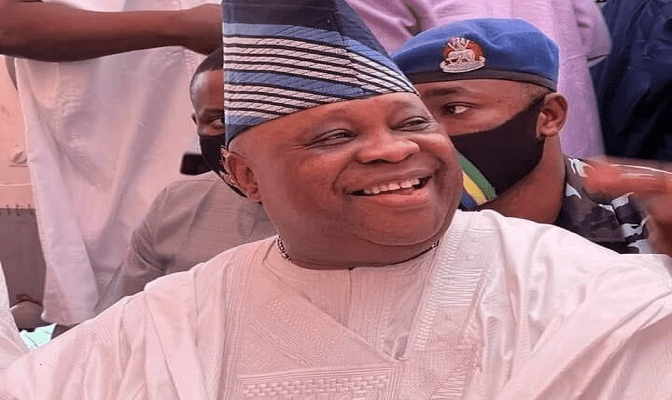

A glaring disparity has emerged in Osun State’s 2024 Q3 budget performance, revealing a high execution rate in the Governor’s security vote allocation while critical sectors such as education, healthcare, and infrastructure struggle to meet even basic budgetary targets.
This trend raises questions about fiscal prioritization and resource distribution in sectors vital to the welfare and development of Osun citizens.
According to a detailed analysis of the 2024 Q3 Budget Performance Report, the Governor’s security vote utilization reached an impressive 97.3%, underscoring a strong financial commitment to security measures across the state.
The high performance in this allocation suggests it has been prioritized in response to ongoing security challenges over other administrative priorities.
In contrast, other key sectors that directly impact citizens’ quality of life showed dismal performance figures, raising concerns over the government’s commitment to holistic development.
In the education sector, for instance, the budget report shows that only 64.3% of the allocated funds were utilized by the end of Q3, despite a substantial budget exceeding ₦25 billion.
READ ALSO
•How I Killed 76 Women For Ritual To Bank Managers, Politicians
•How Woman Forced Teenager To Sleep With Husband
Healthcare fared no better, with only 40.6% of its budget achieved by Q3, pointing to a slow trickle of funds into the sector’s development needs. Despite pressing demands for improved medical facilities, healthcare workers, and services to tackle public health challenges, the report highlights an apparent funding gap.
The state’s infrastructure and capital projects are similarly underwhelming in terms of budget performance. The report indicates that capital expenditure, crucial for the state’s long-term growth, reached only 57.1% of the target.
Another area of concern is the weak revenue performance from independent sources, which achieved a low 46.4% budget execution rate. This highlights a heavy reliance on federal allocations, especially the state’s share of VAT and gains from the exchange rate.
The report also shows recurrent expenditure, including personnel costs and overheads, performing at 76%. This focus on recurrent spending suggests that while personnel obligations and subsidies are met, there may be limited funds left for developmental projects in key sectors.
Sodiq Lawal is a passionate and dedicated journalist with a knack for uncovering captivating stories in the bustling metropolis of Osun State and Nigeria at large. He has a versatile reporting style, covering a wide range of topics, from politics , campus, and social issues to arts and culture, seeking impact in all facets of the society.
The 2023 presidential candidate of the African Action Congress (AAC), Omoyele Sowore, was attacked on…
Charges against Gbolahan Obanikoro and four others over an alleged N1.3 billion fraud have been…
By Abdulfatah Robiu Despite the ongoing harmattan semester examinations, students of Obafemi Awolowo University (OAU),…
For yet another year, East African long-distance runners have asserted their dominance at the annual…
The Bureau for Public Enterprises (BPE) has revealed that Delta Steel Company, valued at over…
A woman who accused hip-hop stars Sean “Diddy” Combs and Jay-Z of sexually assaulting her…
This website uses cookies.